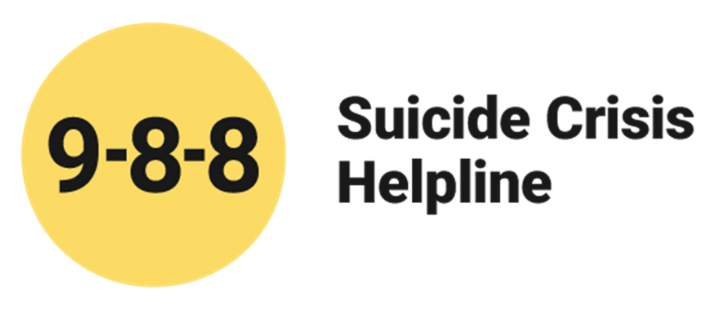If you have any questions or concerns related to your privacy and CMHA WW, please contact our Chief Privacy Officer, Anna Tersigni at atersigni@cmhaww.ca or 1-844-CMHA WW3 (2642-993) ext. 2011.
Understanding Your Personal Health Information and Privacy Rights
What is personal health information?
Your personal health information may contain information about:
- your mental health
- your physical health
- your health history
- your personal history
- your relevant family medical history
Why is my information being collected?
Your personal health information (PHI) is primarily used to paint the picture of your overall health so that your care providers can give you better care. Sharing your PHI by mail, fax and electronically with other service providers is important. The information shared with the members of your community care team allows them to have the most up-to-date information about you so they can better and more safely meet your needs.
How does CMHA WW use my information?
CMHA WW may collect, use or disclose your health information for the following reasons:
- To obtain and share appropriate information quickly with health care providers involved in your care so they can provide timely, quality and safe care
- To communicate with or consult with your other health care providers
- To improve our programs and services (through satisfaction surveys, etc.)
- For payment-related purposes (including OHIP, WSIB, private insurance companies and others)
- For statistical and other kinds of reporting obligations
- For fundraising activities
- For other purposes as permitted or required by law
How is my personal health information being protected?
CMHA WW complies with Ontario’s health privacy & security standards. CMHA WW has performed, and successfully met a healthcare industry Privacy Impact Assessment & Threat Risk Assessment, on our client health information system. Your PHI can only be used by authorized staff providing you with health care support and services.
Your care providers are required to have administrative, physical and technical safeguards to protect their physical records and their electronic networks from misuse, correction, copying, disclosure, destruction, monitoring and/or damage.
These safeguards include, security software and encryption protocols, firewalls, locks and other access controls, privacy impact assessments, privacy training for staff and students, and confidentiality agreements. Privacy and security safeguards are constantly under review and are enhanced where necessary to ensure the highest level of protection.
What are my privacy rights?
You have the right to request a copy of your clinical file by contacting your health service provider. You also have the right to request a correction or amendment to your PHI. You have the right to block all or parts of your clinical file to designated recipients. You may log a complaint if you feel that your service provider has not addressed your privacy concern correctly.
How is my privacy protected even when I receive my services through secure virtual care?
Secure virtual care includes telephone, email, text and videoconferencing (through OTN or Microsoft Teams). We will ask for your express, verbal consent to communicate using any of these platforms.
Reference: RHP F 007 Use of Virtual Technology to Facilitate Services–Client & Significant Other Guide
How is my privacy protected when we use virtual care methods?
We will ask for your express, verbal consent to communicate.
Due to privacy concerns, we discourage counselling via email or text. However, with your informed, documented, verbal consent we may communicate “need to know” information via email if all other methods of communication, telephone or mail are not possible and/or will impede urgent and/or needed services.
Texting may be used only to send/receive administrative communication, for example appointment times or medication renewal requests.
Is my personal health information ever sent using email?
Within a virtual care environment, it may be necessary to expedite your service to use email along with protected documents that include your personal health information, either to you or to other healthcare providers, within your circle of care. Your express verbal consent will be obtained to any other required non-circle of care providers (e.g., legal). All personal health information will be transmitted using our CMHA WW Emailing/text policy guidelines.
Reference: DSRHP P 104 Health Privacy Policy
DSRHP P 100 Email & Texting Policy
Can my personal health information be shared with third parties that are not health care providers?
Your health care provider requires your express consent to share your PHI with third parties. You can request copies of parts and/or all of your health record for purposes other than healthcare, such as your lawyer, or an application for short or long term disability.
Are there times when my personal health information can be shared without my express consent?
Yes – there are times when your health care providers are required to share your personal health information without your express consent. For example, if you are at risk of harm to self or others, we may need to share need-to-know information to keep you safe. Your health care providers are also obligated by law to respond to a subpoena and/or search warrant.
Anonymous demographic and statistical data may also be used for the purposes of program and funding evaluation.
Why are my assessments shared in a centralized electronic assessment system?
Having your health information in an electronic format allows your authorized health care providers to access your health history quickly and securely, no matter where you receive care. Since the other health service providers involved in your care have a better picture of your assessments, they will be able to provide you with better care.
A centralized electronic sharing system is used to share your assessment data with community health service providers who need to review the assessment data in order to provide services to you. If you have concerns regarding the privacy and security of your personal health information, you may contact your health service provider’s Privacy Officer. If you wish to consent or withhold your consent to the sharing of your assessments in the electronic sharing system you may contact the Consent Call Centre at 1-855-585-5279 or TTY (1-855-973-4445).
What does it mean when I give my consent to share my personal health information within my circle of care?
When you give your consent, your assessment record will be uploaded onto a secure and centralized electronic assessment system. Your care providers will use the information in your assessment to provide you with the safe, quality care that better meets your needs. You have the right to be informed of the positive and negative consequences of your consent to share (or not to share) your personal health information with health service providers involved in your care.
To learn more about electronic health information supporting high quality and timely care click here.
How do I provide Feedback/Complaint?
- You can provide your feedback on our website at cmhaww.ca
- Email: feedback@cmhaww.ca or complaint@cmhaww.ca
- Feedback Call: 1-844-CMHA-WW3 (2642-993) ext. 1800/Complaint Call: 1-844-CMHA-WW3 (2642-993) ext. 1801


 CMHA Waterloo Wellington, the lead agency for Here 24/7 is a proud partner in 9-8-8 Suicide Crisis Helpline.
CMHA Waterloo Wellington, the lead agency for Here 24/7 is a proud partner in 9-8-8 Suicide Crisis Helpline.